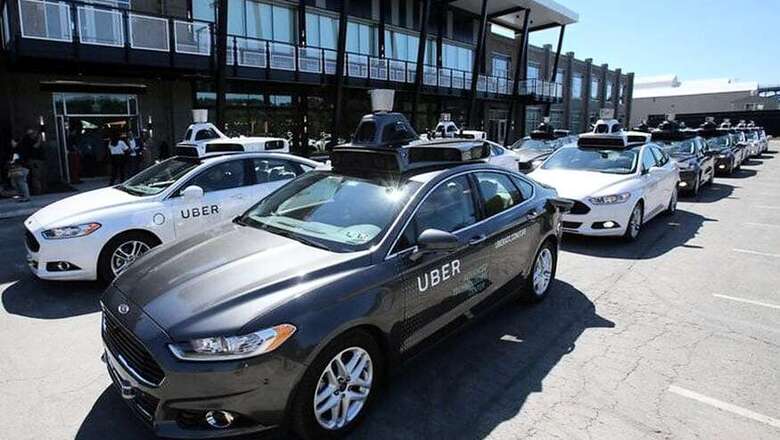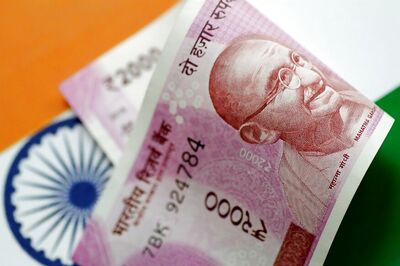
views
The launch of Uber's self-driving pilot program marks the public unveiling of the company's secretive work in autonomous vehicles and the first time self-driving cars have been so freely available to the U.S. public.
More than two years ago Uber - like most in the car business - identified autonomous driving technology as the springboard for the next stage of growth.
The aggressive San Francisco-based startup has already shaken up the world’s taxi services, earning a valuation of $68 billion. It plans ultimately to replace many of its 1.5 million drivers with autonomous vehicles.
But it is not as if robots are taking over the Steel City. There will be only four self-driving vehicles available to passengers, to start, and two people will sit in the front to take over driving when the car cannot steer itself.
Uber provided ridealongs to reporters. During a ride of about one hour, Reuters observed the Uber car safely - and for the most part smoothly - stopped at red lights and accelerated at green lights, travelled over a bridge, moved around a mail truck and slowed down for a driver opening a car door on a busy street. All without a person touching the controls.
But the Uber driver and the engineer in the front two seats did intervene every few miles.
Since opening its Advanced Technologies Center in Pittsburgh last year, San Francisco-based Uber has moved quickly, hiring away some 40 faculty and researchers from Carnegie Mellon University - a move that ruffled feathers locally - and forming partnerships with automakers including Volvo.
But the company is competing in a crowded field. From Alphabet Inc and Baidu Inc to Tesla Motors Inc and General Motors Co, technology companies and automakers are hustling to build autonomous vehicles and develop new business plans for what is expected to be a long-term makeover of personal transportation.
By integrating self-driving cars with its ride-services app, Uber may be the first introduction to autonomous cars that many people will have.
“If Uber scores a home run with this it's going to be wonderful for the planet," said Andrew Moore, dean of the School of Computer Science at Carnegie Mellon. "The reason is we will see a much safer world and a much more efficient world where we have to use less energy to move people around."
Still, Moore said at least another decade of research and development is needed before there would be a significant number of truly autonomous cars on the road. Industry executives remain sharply divided on the timeline, with some expecting fully autonomous cars within five years and others predicting they are still decades away.
“I don’t think that Uber by any means has it in the bag,” Moore said.




















Comments
0 comment